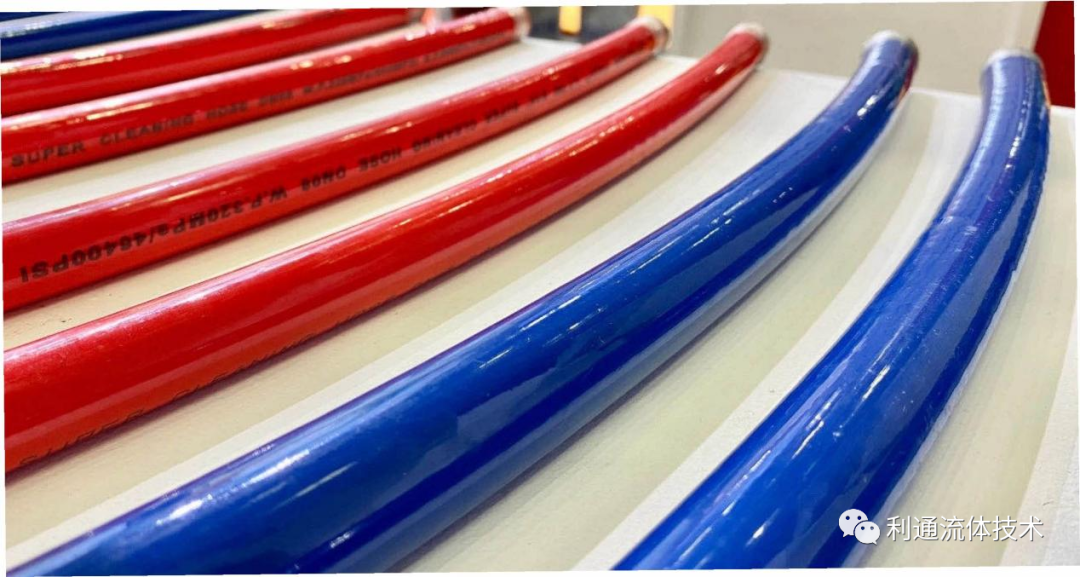Demystifying API Hose: An Application and Selection Guide
2024-10-29 14:06:08
In today’s rapidly evolving technological world, the importance of flexible conveying systems cannot be underestimated. API hose is one of the versatile pipe solutions that plays an important role in industries such as industry, agriculture, petrochemicals, etc. For those who want to understand its meaning and purpose, this article will explore the various aspects of API hose in detail. By gaining a deeper understanding of the characteristics of this pipe and its application scenarios, you will be able to make an informed decision when choosing it.
What is API hose?
API is the abbreviation of “American Petroleum Institute”, which is an organization that sets standards for the oil and gas industry. API hoses are named after this and mainly refer to hoses that meet the standards of this organization. These hoses are rigorously tested and verified to ensure that they can maintain excellent performance in various harsh environments.
API hoses are usually made of multiple layers of materials, including liner, reinforcement layer and outer layer. The liner part is usually made of corrosion-resistant materials such as polytetrafluoroethylene (PTFE), while the reinforcement layer uses braided metal or synthetic fibers to increase the strength of the pipe. The outermost layer plays a protective role and is usually made of wear-resistant and weather-resistant materials. These constituent materials ensure the high durability and reliability of API hoses, and are widely used in various occasions that require elasticity and robustness.
Application scope of API hoses
Due to their superior properties such as high temperature resistance, high pressure resistance and corrosion resistance, API hoses are widely used in many fields.
1. Oil and gas industry
During the process of oil drilling and transmission, the requirements for equipment and materials are extremely strict. API hoses are often used for the transmission and processing of oil and gas because of their outstanding corrosion resistance and high pressure resistance. The hose can remain stable under high pressure and avoid leakage, thereby ensuring the safety and efficiency of work. In addition, API hoses also have good wear resistance and are suitable for use in harsh drilling environments.
2. Chemical industry
The chemical industry needs to handle a variety of highly corrosive liquids, so corrosion-resistant materials are the key to its equipment. The PTFE lining of API hoses provides excellent chemical stability and can safely transmit various corrosive chemicals, such as strong acids, alkaline solutions, etc. In this way, API hoses have great advantages in ensuring process safety and stable operation.
3. Food and Pharmaceutical Industry
These industries have strict requirements for hygiene and safety standards, and API hoses are designed to allow them to be used for the transportation of sensitive fluids. Because their lining materials meet food-grade standards, API hoses can safely transport dairy products, drinking water and pharmaceuticals. Antibacterial properties and easy-to-clean design make them ideal for fluid transportation in sanitary environments.
4. Marine and Ship Applications
In the marine and ship fields, API hoses are used for fuel transportation, sewage treatment and ballast water systems. Good resistance to salt spray and weathering enables them to overcome the harshness of the marine environment and ensure long-term trouble-free operation.
Choose the right API hose
1. Choose according to fluid and pressure level
The selection of hoses should be based on the type of fluid to be transported and the pressure that may be in the system. High-pressure environments require specially designed high-strength API hoses, which will determine the inner diameter and wall thickness of the hose.
2. Temperature resistance is critical
API hoses are usually required to operate at different temperatures, so when selecting, their temperature resistance range should be fully considered. Selecting hoses that exceed the actual operating temperature range will greatly improve safety and equipment life.
3. Pay attention to the flexibility and durability of the hose
Flexibility has a significant impact on the installation and maintenance of equipment. The ideal API hose should have good flexibility and durability. The high-quality reinforcement layer provides the necessary strength for the hose while ensuring its reliability during use.
4. Chemical resistance
According to the chemical properties of the transport medium, select the appropriate lining material to ensure that the hose can be exposed to the chemical environment for a long time without damage.
API hose plays a vital role in modern industry. Its high efficiency and durability provide reliable solutions for many industries. Understanding its structural and functional characteristics can help users choose the right product according to specific needs. In addition, good maintenance and care will ensure the long-term use of the hose and protect the equipment and the environment. Through the guidance of this article, I hope you can better understand and use API hoses and improve your production efficiency and equipment safety.